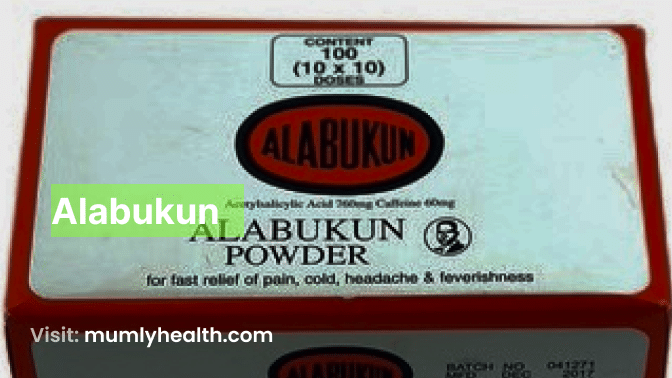In the vast landscape of traditional medicine, Nigeria holds a treasure trove of remedies, each with its unique cultural significance. One such remedy that has gained immense popularity over the years is Alabukun. Often hailed as Nigeria’s iconic pain reliever, Alabukun has become a household name and a trusted companion in times of discomfort and pain.
In this article, we will delve into the history, composition, medicinal uses, and cultural significance of Alabukun, as well as explore interesting facts and user experiences.
History and Origin of Alabukun
Alabukun’s roots can be traced back to the early 20th century when it was first introduced to the Nigerian market. It was created by a Nigerian pharmacist, Jacob Sogboyega Odulate, also known as “Blessed Jacob.”
Inspired by traditional Yoruba medicine and his training as a pharmacist, Blessed Jacob developed a formulation that combined acetylsalicylic acid (aspirin) and caffeine. This unique combination proved to be highly effective in providing quick relief from various ailments.
Composition and Ingredients of Alabukun
Alabukun is composed of two primary ingredients: acetylsalicylic acid (aspirin) and caffeine. Acetylsalicylic acid is a well-known analgesic and anti-inflammatory compound, while caffeine acts as a stimulant and enhances the effects of the pain reliever. These two ingredients work synergistically to alleviate pain and discomfort.
Medicinal Uses of Alabukun
- Alabukun as a Pain Reliever: One of the primary uses of Alabukun is its effectiveness in relieving pain. Whether it’s a headache, toothache, menstrual cramps, or muscle soreness, Alabukun is often trusted to provide quick relief.
- Alabukun for Digestive Issues: Alabukun is also known to aid in alleviating digestive issues such as indigestion, bloating, and mild stomach discomfort. The anti-inflammatory properties of aspirin help reduce inflammation in the digestive tract, while caffeine acts as a mild stimulant.
- Alabukun for Hangovers and Nausea: Many individuals turn to Alabukun as a remedy for hangovers and nausea. The combination of aspirin and caffeine helps alleviate headaches and provide a boost of energy, reducing the symptoms associated with hangovers.
Other Health Benefits of Alabukun
Apart from its pain-relieving properties, Alabukun is believed to offer several other health benefits. Some of these include:
- Reduction of fever and flu-like symptoms
- Relief from mild respiratory congestion
- Temporary relief from minor arthritis pain
- Potential benefits in reducing the risk of blood clot formation
Precautions and Side Effects of Alabukun
While Alabukun can provide relief for various ailments, it is essential to exercise caution and be aware of potential side effects. Aspirin may cause stomach irritation, ulcers, and other gastrointestinal complications in some individuals.
It is not recommended for those with a history of stomach ulcers, bleeding disorders, or allergies to aspirin. Additionally, prolonged and excessive use of Alabukun may have adverse effects on the liver, kidneys, and cardiovascular system. It is always advisable to consult a healthcare professional before using any medication or remedy.
Read Also: 22 wrong ways of preventing unwanted Pregnancy after sex
Availability and Packaging of Alabukun
Alabukun is widely available across Nigeria in small rectangular paper sachets. The packaging features the iconic red, white, and blue colours, with the name “Alabukun” prominently displayed. These sachets are easily recognizable in pharmacies, roadside kiosks, and
convenience stores throughout the country. The affordability and accessibility of Alabukun have contributed to its popularity, making it a go-to choice for many Nigerians seeking quick relief from pain and discomfort.
Cultural Significance of Alabukun
Beyond its medicinal uses, Alabukun holds a special place in Nigerian culture. It has become a symbol of resilience and resourcefulness, reflecting the ingenuity of Blessed Jacob in creating a remedy that caters to the needs of the community.
Alabukun is often associated with nostalgia, as many Nigerians fondly remember their parents or grandparents reaching for the familiar red and white packet during times of illness. It has become a part of the collective memory and cultural identity of the Nigerian people.
Famous Brands and Variants of Alabukun
Over the years, Alabukun has gained popularity and recognition, leading to the emergence of different brands and variants. While the original Alabukun remains a favourite among consumers, there are variations available that combine Alabukun with other herbal ingredients to cater to specific needs. These variants often claim to provide additional benefits such as improved digestion, enhanced immunity, or targeted pain relief.
Alabukun in Popular Culture and Media
Alabukun’s iconic status extends beyond its medicinal uses. It has found its way into Nigerian popular culture, featuring in songs, movies, and literary works. Its mention in various forms of media has further solidified its position as a symbol of Nigerian identity and resilience.
Interesting Facts and Trivia about Alabukun
- Alabukun is said to be one of the oldest indigenous Nigerian pharmaceutical products still in use today.
- The name “Alabukun” is derived from the Yoruba phrase “Alabukun ni mo ba kun,” which means “I will suffer no more.”
- Alabukun gained popularity during the influenza pandemic of 1918 when it was widely used to alleviate symptoms and provide relief.
- Alabukun’s distinctive packaging has remained largely unchanged since its inception, contributing to its recognition and brand loyalty.
User Experiences and Testimonials with Alabukun
Many individuals have shared their personal experiences and testimonials regarding the effectiveness of Alabukun. These anecdotes highlight the rapid relief it provides for various ailments, making it a trusted companion for many Nigerians.
Conclusion
Alabukun stands as a testament to the rich tradition of Nigerian traditional medicine and the resourcefulness of its people. Its unique composition, affordability, and widespread availability have made it a staple in many Nigerian households.
While its pain-relieving properties are widely recognized, it is important to use Alabukun responsibly and seek professional medical advice when needed. As Alabukun continues to be an integral part of Nigerian culture and healthcare, its legacy lives on, providing relief and comfort to generations to come.
